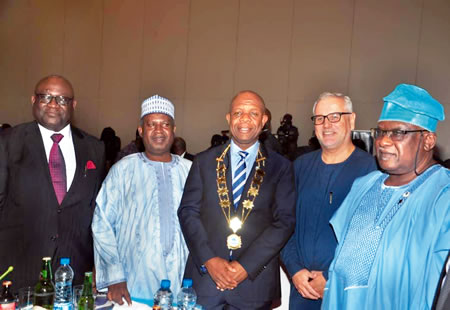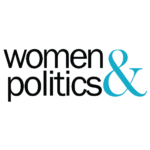THE event was meant to be an investiture of its president, Mr. Tony Agenmommen, for a second term of two years in office, and an induction ceremony for some long-standing members, as fellows of the institute, but the National Institute of Marketing of Nigeria (NIMN), would not let such forum go without drumming it into the ears of marketing practitioners, around, why ethics and sustainability have remained the soul of any business, especially the marketing practice, in Nigeria.
In his Investiture Lecture tagged ‘Ethics and Sustainability in Marketing’, the Chief Executive Officer of S.O&U, Sir Udeme Ufot, had identified rarity of ethical practices and behaviours as major encumbrances for businesses in this part of the globe.
Insecurity: Nigeria has never been this bad —Pastor Adeboye
According to him, despite government’s commitment to improving the business environment through the Ease of Doing Business initiative, businesses in Nigeria still ‘grab success from the jaws of adversity’, while the economy still remains very inimical to business growth.
He identified various obstacles such as predatory regulators, stiff and unhealthy competition, inadequate resources (human and capital), unfriendly and unpredictable policies, multiple taxation, poor infrastructure and a generally unsupportive business environment, as some of those challenges that businesses, desirous of survival in the country have had to contend with on daily basis.
“Stories have been told where expatriate CEOs have declined postings to Nigeria, alleging that the environment is now a graveyard for careers. I have also heard that the market is considered a hardship posting and therefore expatriates posted here receive a special hardship allowance,” he stated.
In consequence, such humongous challenges are increasingly putting managers under severe pressure to bridge the gap between the potential the nation’s economy offers their businesses and the reality of the environment in meeting business objectives, the former Chairman of Advertising Practitioners Council of Nigeria (APCON) further argued.
“Such pressures can sometimes lead to desperate short term measures that compromise the values of the organization and challenge its future sustainability,” he added.
While insisting on the need for businesses to stay on course, amidst the nation’s turbulent business landscape, the S.O&U boss insisted such call has become imperative; since most Nigerian businesses are constantly facing challenges that have continued to threaten their daily existence and their sense of moral values.
The S. O & U boss therefore counselled businesses on the need to establish a set of shared values and principles that will serve as moral compass in running their affairs in the nation’s business environment.
“It may be in the form of a Code of Conduct or Table of Values that define ethical conduct in the organisation; what can be done, and must not be done in a way that is clearly communicated and understood by all members of the team,” he added.
Using the S.O & U, as an example, Sir Ufot argued that the agency had been able to survive the nation’s turbulent business landscape in the past few decades, since it had spelt out a set of values and principles under which it would operate.
“In SO&U where I preside, we have seen the best and the worst of times in our nearly 30-year history, and have managed to survive the harsh times. This is because from day one, SO&U articulated for itself, a set of values and principles under which it would operate.
“Chief of these values was integrity, and this has been applied both to our internal relationships as well as external relationships. These values have seen us through thick and thin securing the loyalty and commitment of staff, clients and suppliers. This is probably why staff can commit their lives to the organisation from being youth corpers to becoming directors, in an almost life- long career,” he stated.
He argued that in client Agency relationships, integrity must be played out not only in the day-to- day client agency dealings, but also be reflected in agency approach to briefs. “Agencies do their clients a world of good by interrogating briefs dispassionately and confirming the assertions contained in the brief crafted for them. A lie may be sold once, but once the customer discovers, the brand will unravel. And very quickly too.
“Promotions and Activations must offer and deliver what they promise and not for the customer to be offered chalk for cheese or told a story on the day he comes to collect the car he was told he had won.
“Never deceive others, in business or in life. Padded invoices by Agencies will only build distrust of the client for Agency’s costing. Valuable time will be wasted haggling over costs because of low trust levels,” he stated.
Sir Ufot also stated that to be able to build a brand successfully, marketers and their agencies must nurture and sustain a romantic relationship with their consumers. He however stressed that such relationship must be anchored on transparency, integrity, respect and genuine commitment to values and aspirations of the consumer.
While delivering his Investiture Address at the event, shortly after taking the oath of office, as the institute’s president and chairman of council for a second time, Mr. Tony Agenmonmen described the issue of ethics and sustainability as very key for businesses, desirous of survival.
He explained that the decision to have the theme of the Investiture woven around ethics and sustainability was informed by the need to inculcate such virtues in the nation’s marketing practice.
“We take ethical behaviour by our members very seriously. That is why the guest speaker focused on the subject. We indeed expect our professionals to be role models in their organisations and in the country in general.
“However, we shall not leave this to chance as the professional misconduct of one has the capacity to smear the reputation of the entire profession,” Agenmonmen stated.
He added that the institute, by end of November 2019, will publish its Code of Marketing Ethics (CoME), in consultation and collaboration with its critical stakeholders – ADVAN and EXMAN.
The Code, which will be officially gazetted, he added, is designed to give clear meaning to the provisions of the Act and as a guide to professional conduct by all marketing practitioners in Nigeria.






